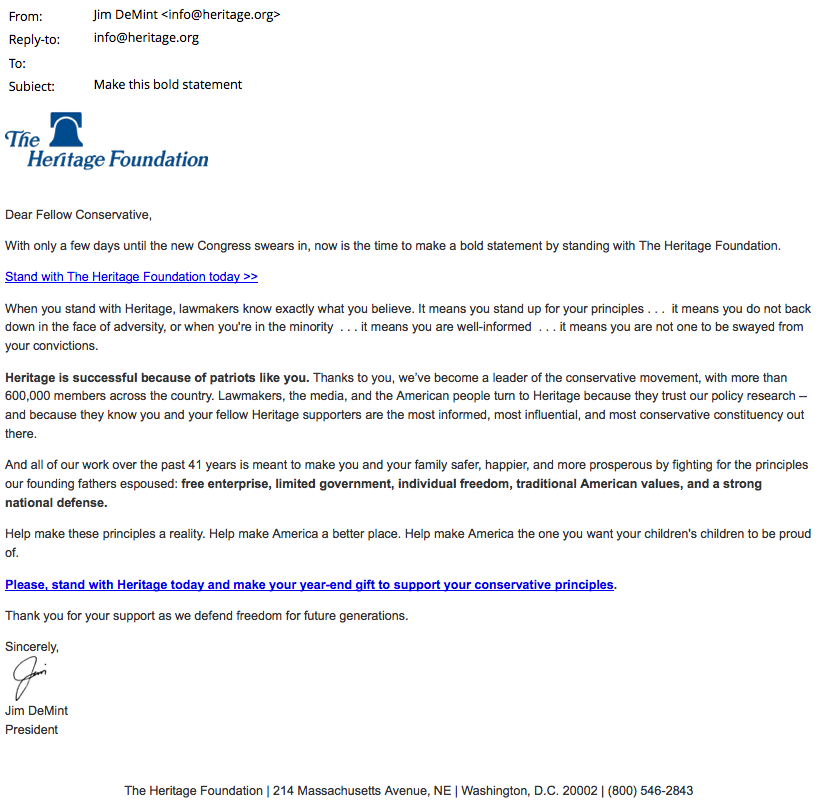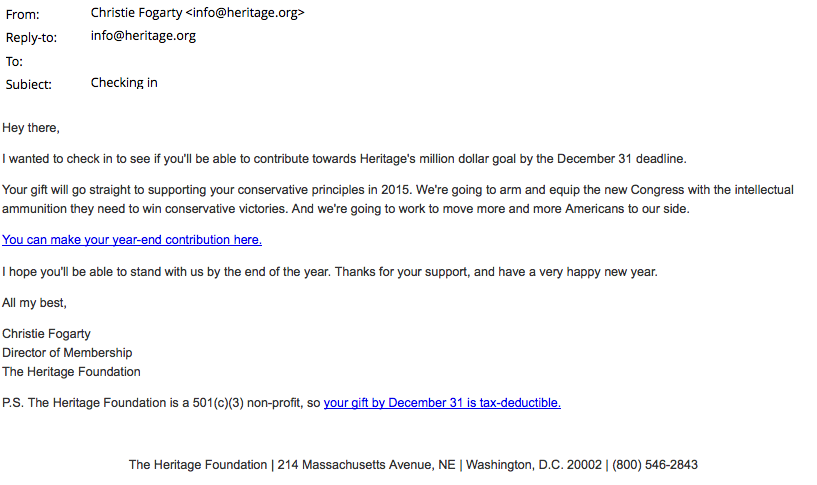This A/B test changed how we write our fundraising emails
For years, every Heritage Foundation fundraising email was sent from our president. The appeals were sent on templates that resembled direct mail stationery, with the logo at the top. They even included a faux signature at the bottom.
They were written in formal, authoritative language that we affectionately called “God voice.” “You are not one to be swayed from your convictions,” said one appeal, which called on donors to “make a bold statement” by making a gift.

We sent emails that way because, we told ourselves, that’s what our donors expected. It’s what we had always done. But might it work better if the emails sounded like they were written by an actual person, not Fundraising God? This was a lesson the Obama campaign learned from some of their testing.
So we set about testing it ourselves. Our hypothesis was simple: people give to people. No actual person writes like we were writing our fundraising emails.
We created another email to test against our typical message. It came from our membership director and adopted a far more casual tone. And we stripped the fake stationery so it looked like a real person wrote it.

We tested this head to head against the God-voice email above. The more informal language won. It wasn’t even close.
The casual message generated 380 percent more revenue than the more formal appeal. The average gift alone was double!
Better yet, because we tested a theory of the donor - that people are more likely give to people - we could extrapolate this approach to future appeals. This wasn’t a one-time win but a lesson we could apply going forward.